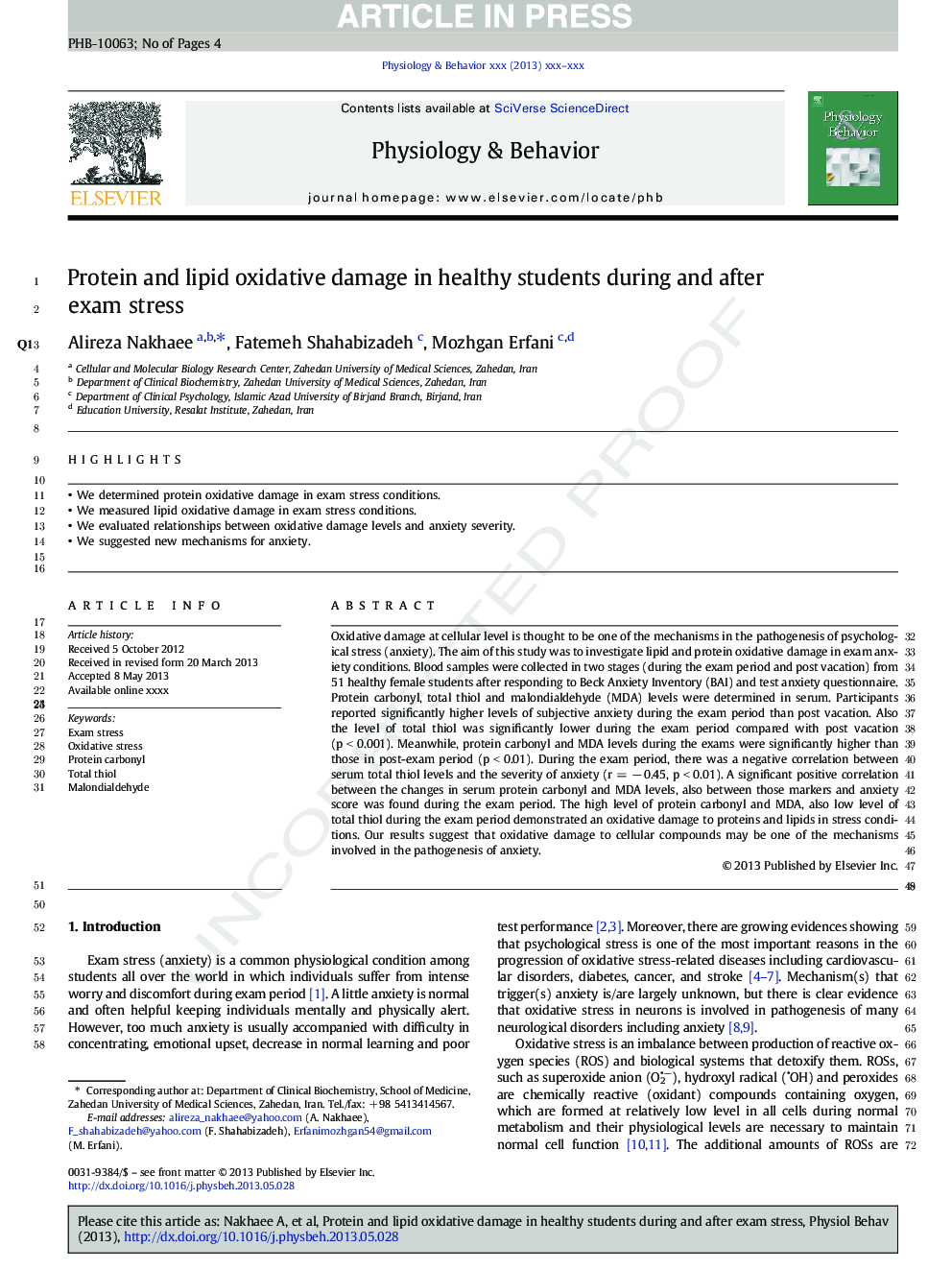| Article ID | Journal | Published Year | Pages | File Type |
|---|---|---|---|---|
| 5924708 | Physiology & Behavior | 2013 | 4 Pages |
Abstract
Oxidative damage at cellular level is thought to be one of the mechanisms in the pathogenesis of psychological stress (anxiety). The aim of this study was to investigate lipid and protein oxidative damage in exam anxiety conditions. Blood samples were collected in two stages (during the exam period and post vacation) from 51 healthy female students after responding to Beck Anxiety Inventory (BAI) and test anxiety questionnaire. Protein carbonyl, total thiol and malondialdehyde (MDA) levels were determined in serum. Participants reported significantly higher levels of subjective anxiety during the exam period than post vacation. Also the level of total thiol was significantly lower during the exam period compared with post vacation (p < 0.001). Meanwhile, protein carbonyl and MDA levels during the exams were significantly higher than those in post-exam period (p < 0.01). During the exam period, there was a negative correlation between serum total thiol levels and the severity of anxiety (r = â 0.45, p < 0.01). A significant positive correlation between the changes in serum protein carbonyl and MDA levels, also between those markers and anxiety score was found during the exam period. The high level of protein carbonyl and MDA, also low level of total thiol during the exam period demonstrated an oxidative damage to proteins and lipids in stress conditions. Our results suggest that oxidative damage to cellular compounds may be one of the mechanisms involved in the pathogenesis of anxiety.
Related Topics
Life Sciences
Biochemistry, Genetics and Molecular Biology
Physiology
Authors
Alireza Nakhaee, Fatemeh Shahabizadeh, Mozhgan Erfani,
